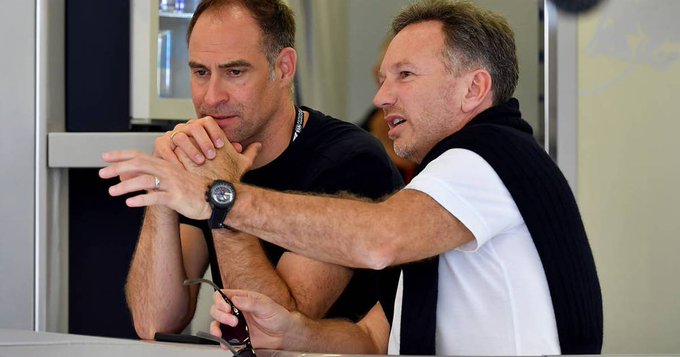That information is not confirmed or cleared. All that is known at this point is, there is an investigation against Horner.Ground Effect wrote: ↑08 Feb 2024, 10:03Isn't that a job for HR to sort out? What's with the external lawyers? Should someone's job be on the line for that? Have there being multiple reports by staff of such behaviour? F1 after all, is a high pressure job, probably at any operational level. The early reports stated inappropriate behaviour of a controlling nature, that was used in the BBC article. The allegation is being made by a female staff, so a lot of people are filling in the blanks based on the information available. It is a bizarre situation, but the controlling nature thing could suggest that her job or career progression was being threatened.proteus wrote: ↑08 Feb 2024, 09:29It is interesting to see how jet again missinformation leaked by the media. It was not a sexual harassment, but the employee was supposedly under too much pressure and control from Horner.... Remember kids, never trust majority of journslists, because they go only for clicks and not for the truth. Truth can come later, after lies make enough damage...
To manage any kind of harassment at work place, in many countries, the law requires that the organizations are required to form a harassment redressal committee, constituting a set of internal employees (potentially all in management in different functions, including HR), also including an external lawyer to provide unbiased legal direction in the matters as dictated by the local laws. So it's not surprising that there is a lawyer (or law firm) part of this investigation.
This is what I found from ChatGPT, which is more relevant to this case.
When a harassment complaint involves an employee of a subsidiary company located in a different country than the parent company, the situation becomes more complex due to jurisdictional differences and legal considerations. In such cases, the parent company may still have a role in addressing the issue, but the investigation process would likely need to be conducted in accordance with the laws and regulations of the country where the subsidiary is located.
Several factors come into play in this scenario:
Jurisdictional Differences: Employment laws, regulations, and procedures vary from one country to another. The parent company would need to navigate the legal framework of the subsidiary's country when conducting an investigation.
Legal and Compliance Considerations: The parent company must ensure that its actions comply with the local laws of the subsidiary's country. This may involve working with legal counsel familiar with the employment laws in that jurisdiction.
Coordination with Local Authorities: Depending on the severity of the allegations and the legal requirements of the subsidiary's country, it may be necessary for the parent company to coordinate with local authorities or agencies.
Cross-Border Data Protection: If the investigation involves the processing of personal data, the parent company needs to consider cross-border data protection regulations, such as the General Data Protection Regulation (GDPR) in the European Union.
Communication and Cultural Sensitivity: When conducting an investigation in a different country, cultural differences and communication styles should be taken into account to ensure a fair and effective process.
Given these complexities, it is advisable for the parent company to work closely with legal experts in both its home country and the subsidiary's country to navigate the investigation process appropriately. Additionally, the subsidiary's own policies and procedures for handling such matters should be considered and followed, and the involvement of local HR professionals may be crucial in understanding and respecting the local context.


